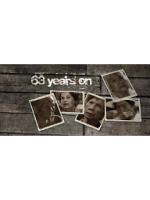130, Suyeonggangbyeon-daero,
Haeundae-gu, Busan, Republic of Korea,
48058
DATABASE
63 Years On (2008)
< Kkeun-na-ji An-eun Jeon-jaeng >
It has been 63 years since the Pacific War (1941~1945) ended. For so many Asian women, however, the war has never ended, as many are still living with the nightmare of the atrocities the Japanese troops had imposed on them with the military, government-led, ‘sex slavery system.’ LEE Soo-San, a Korean-born Chinese woman, was 17 and so was Jan Ruff O’Herne, a Dutch-born Australian, when they were kidnapped by the Japanese army stationed in Java, Indonesia. Rayes and Fria...more
| Genre | Documentary | Production Status | |
|---|---|---|---|
| Running Time | 60min | Release Date | - |
| Country | South Korea | Rating | |
| Language | Korean | Co-Production | N |
| Original |
-
Number of Screens : 1
-
Total Admissions : 12
-
Total Gross : $51
As of Feb 05, 2026
-
Dreamville Entertainment Co., Ltd. | docurose@yahoo.com






